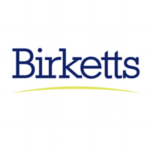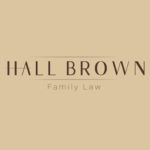Wills & Trusts Law Reports | Summer 2019 #175Introduction
W, who died some years ago, established several settlements (referred to generally as ‘the General Family Trusts’), either directly or by trustees to whom he had provided funds. The value of the General Family Trusts was very substantial indeed. W had been married several times and had a large family. A representation was issued in respect of two of the General Family Trusts: the Y Trust and the Z Trust. The trustee companies of both of the trusts were amongst the respondents.
It had been W’s wish that after his death, in the administration of ...
Sean Hilton highlights the importance of identifying trust issues at the outset of a case and ascertaining the willingness of trustees to make distributions from such assets ‘If the court is to find that assets not held in the name of an individual are nonetheless a resource available to them, it must first hear evidence …
Continue reading "Trusts: The complete picture"
This post is only available to members.
Richard Dew and James Egan give an analysis of the current status of the doctrine of illegality and trusts ‘There are two categories of conduct that count for the purposes of the doctrine of illegality: first, criminal acts; and second, quasi-criminal acts which engage the public interest in some way (such as cases involving dishonesty …
Continue reading "Trusts: It will be alright on the Knight"
This post is only available to members.
Mark Pawlowski and James Brown examine the possibility of using the mechanism of a residuary legatee in order to enforce a trust for non-charitable purposes ‘If there are no beneficiaries with equitable interests in the trust assets, there is technically no one “in whose favour the court can decree specific performance”.’ As trust lawyers will …
Continue reading "Trusts: Enforcing private purpose trusts"
This post is only available to members.
Mike Muston reviews a case which indicates that the courts will take a ‘common sense’ approach to construction and rectification ‘The case of Millar provides further confirmation, following on from the Supreme Court decision in Marley, that courts will approach cases of construction and rectification on a practical and common-sense basis.’ The case of Millar …
Continue reading "Trusts: After Marley"
This post is only available to members.
Paul Clarke explores the challenges of establishing that trust obligations have arisen after the failure of a joint venture ‘It is surprisingly easy for parties, even experienced commercial parties, to invest large amounts of time and resources in the hope of a joint venture agreement being reached, but fail to reach a binding agreement before …
Continue reading "Trusts: A perilous enterprise"
This post is only available to members.
A recent case defines the scope of the Court of Protection for dealing with the variation of trusts. Marie Batchelor explains ‘While a minor has the legal ability to make some decisions, or enter into some agreements, it is widely accepted that a minor does not have the ability to vary a trust.’ The Variation …
Continue reading "Trusts: Adults only"
This post is only available to members.
Wills & Trusts Law Reports | Summer 2018 #172By a lifetime settlement dated 7 December 2005 two sisters settled property on trust as to income for their father during his lifetime and as to capital for themselves if living at the end of the trust period, or their issue if not. The trustees also had a power of appointment in favour of a class of beneficiaries which included the settlors.
However, clause 13 provided that “No discretion or power conferred on the Trustees or any other person by this Deed or by law shall be exercised, and no provision of this Deed shall operate directly or indirectly, so as to cause or permit any...
Abigail Lowther considers sham trusts and their effect on financial claims ‘A sham must be a sham at the point of its creation – it cannot subsequently become a sham because of the changed intentions of one or both of the parties.’ In ND v SD [2017] Roberts J considered sham trusts, the beneficial ownership …
Continue reading "Trusts: Divining intention"
This post is only available to members.
Fiona O’Sullivan analyses the approach of the Court of Appeal in a case concerned with charitable trust assets ‘Quan v Bray reminds practitioners of the importance of considering family law issues at all stages of trust planning and management.’ In Quan v Bray [2017] the Court of Appeal had an opportunity to consider the status …
Continue reading "Trusts: Defined purpose"
This post is only available to members.








